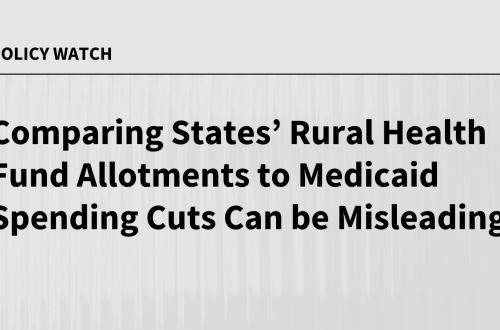Article Summary
Climate change is exacerbating sexual and reproductive health (SRH) risks for young adolescents in Kenya, particularly girls aged 10–14, according to a study published in BMJ Global Health. The research highlights how extreme weather events like droughts and floods lead to food, water, and sanitation insecurities, increasing vulnerabilities such as school dropout, transactional sex, gender-based violence, and early pregnancy. Conducted in six climate-affected regions of Kenya, the study involved 297 participants and employed qualitative methods to explore these challenges. The findings underscore the urgent need for climate-informed, gender-transformative interventions to protect adolescent health and futures.
What This Means for You
- Increased Awareness: Recognize that climate change impacts extend beyond the environment, directly affecting vulnerable populations like young adolescents.
- Advocacy Opportunities: Support policies and programs that integrate climate resilience with sexual and reproductive health initiatives.
- Community Engagement: Collaborate with local organizations to address resource insecurities and reduce SRH risks in climate-affected areas.
- Future Outlook: Without immediate action, the intersection of climate change and SRH risks will continue to worsen, particularly for marginalized groups.
Climate change driving sexual and reproductive health risks among young adolescents in Kenya

Climate change and extreme weather events are threatening the sexual and reproductive health (SRH) of young adolescents in Kenya, according to a new study published earlier this month in BMJ Global Health. The study reveals that food, water, and sanitation insecurities are placing young adolescents aged 10–14, especially girls, at increased risk of school dropout, transactional sex, gender-based violence, and early pregnancy.
“Climate change isn’t just an environmental issue, it’s an urgent public health emergency for young adolescents,” says lead author Dr. Carmen Logie, Professor at the University of Toronto’s Factor-Inwentash Faculty of Social Work (FIFSW) and Canada Research Chair in Global Health Equity and Social Justice with Marginalized Populations.
The study involved 297 participants, including 119 elders and 178 young adolescents across six climate-affected regions in Kenya: Mathare, Kisumu, Isiolo, Naivasha, Kilifi, and Kalobeyei Refugee Settlement. Researchers from the University of Toronto collaborated with two Kenyan community-based organizations, the Center for the Study of Adolescence and Elim Trust. Using focus groups, walk-along interviews, and participatory mapping workshops, the study examined how climate change-induced resource insecurities are shaping SRH risks among youth.
The authors call for climate-informed SRH interventions tailored to the realities of young adolescents in low-resource, high-risk settings. Their findings offer a roadmap for policymakers, NGOs, and health systems working at the intersection of environmental justice and adolescent health.
More information: Carmen H. Logie et al, Climate change, resource insecurities and sexual and reproductive health among young adolescents in Kenya: a multi-method qualitative inquiry, BMJ Global Health (2025). DOI: 10.1136/bmjgh-2024-016637
People Also Ask About
- How does climate change affect adolescent health? Climate change exacerbates resource insecurities, leading to increased risks of school dropout, transactional sex, and gender-based violence.
- What are the main SRH risks for girls in Kenya? Girls face risks such as early pregnancy, menstrual health challenges, and exploitation due to resource shortages.
- What regions in Kenya are most affected? Mathare, Kisumu, Isiolo, Naivasha, Kilifi, and Kalobeyei Refugee Settlement are among the most impacted areas.
- What solutions are proposed? Climate-informed, gender-transformative programs addressing root causes of insecurity are recommended.
Expert Opinion
Dr. Carmen Logie emphasizes that climate change is not just an environmental crisis but a public health emergency, particularly for marginalized adolescents. The study underscores the need for immediate, targeted interventions to mitigate the compounded risks of climate change and SRH vulnerabilities.
Key Terms
- Climate change and adolescent health
- Sexual and reproductive health risks in Kenya
- Gender-based violence and climate change
- Climate-informed SRH interventions
- Resource insecurities in vulnerable populations
ORIGINAL SOURCE:
Source link





